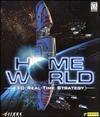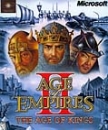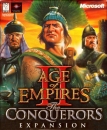JWeinCom said:
The_Liquid_Laser said:
"Occam's Razor is that the simpler explanation is preferred. Not that the simpler explanation is correct. Basically, it's that you don't add anything unnecessary to your explanation. But you still have to include everything that IS necessary."
Einsten put it this way, "Everything should be made as simple as possible, but no simpler." You think my explanation is too simple. I think your explanation is too complex. If you are right, then there should be a situation where we predict different outcomes, because I have neglected relevant information. If we always end up predicting the same thing, then our explanations are equivalent, but mine is better because it is simpler. So, can you think of a situation where we would predict something different?
I think I can, but I may be misunderstanding something with your explanation. I think your explanation would have the NES and Genesis competing in the US during 89-90. Mine would not. Would this be accurate or no?
"There are two problems. First of all, generation doesn't explain things as well as looking at multiple factors. Take gen 7 for example which you just like... chucked out cause you didn't like the data. By your framework the Wii, PS3, and XBox 360 are simply both gen 7 consoles... yet, obviously the PS3 and 360 competed with eachother in a way that they didn't really compete with the Wii. Appealing to generations offers no explanation. On the other hand, looking at all the factors, we would expect incredibly similar PS3 and 360 to compete directly and split up the lion's share of the existing market , which they did. We would expect the Wii to take some part of that market (as it launched at the same time, was Nintendo's marketing focus, had some library overlap, and was somewhat comparable in price at various points) but not a great deal, because of the differences in specs and advertising. We would also expect that because it has new features, it would have the potential to reach new customers."
I didn't use Generation 7, because I think the market temporarily changed in size. There were a lot of temporary customers. There was too much variability. Normally, to perform an experiment you want to control as many extraneous variables as possible. Galileo wanted to show that 2 objects of different mass fall at the same speed in a vacuum, so he dropped 2 objects of different mass from a tall building. His experiment is not negated by the fact that he didn't choose a feather as one of his objects. Often, experiments are performed in a controlled laboratory environment. Since I can't do that in this case, I chose to compare generations that seemed to have similar initial conditions.
Also, I do actually think that the Wii, XB360 and PS3 were all competing. They all had motion controls of some sort, so they seemed to all be competing. Perhaps this is where our explanations would differ. However, I am not clear how your explanation makes them not compete. Is it because of technology or something else?
More importantly generations doesn't actually explain anything. You're trying to explain why certain systems compete with eachother. Your conclusion is that systems compete with eachother because they are part of the same generation... Which is just another way to say that they compete with eachother. It's entirely circular.
Incorrect. There is no circular reasoning, because I am saying a generation starts when the first successor system is released. Generations explain why some systems compete and others do not even when they are for sale on the market at the same time. For example, take the Genesis during 89-90 in the US. The only home system available from Nintendo at this time was the NES. They did not seem to compete. The SNES released in 91. It did seem to compete with the Genesis. I am saying that the first successor starts the next generation, which is the Genesis in this case. I claim that a new generation starts when the first successor is released. That is why it is not circular reasoning.
"So again, I ask, can we make the same predictions based on factors that you and I both know are real and agree are relevant (timing, marketing, library, price point, etc.)? If so, why would we add the concept of generations, which based on this topic is something that people don't agree is relevant, and something people can't agree on the meaning of?"
If we really are predicting the same thing, then my explanation is superior. That is the meaning of Occam's Razor, regardless of how it is stated. If two explanations predict the exact same thing, then the simpler one is the better one. If you can take a bunch of charts and data and sum it up in a single sentence, then the sentence is better than the charts and data. Simplicity is better than complexity if the two explanations actually are equivalent.
The real question then, is "Are our two explanations equivalent?" Can you think of an instance where we would predict different outcomes? If the answer is "no", then "generation" is one word that means everything you are saying.
|
If we really are predicting the same thing, then my explanation is superior. That is the meaning of Occam's Razor, regardless of how it is stated. If two explanations predict the exact same thing, then the simpler one is the better one. If you can take a bunch of charts and data and sum it up in a single sentence, then the sentence is better than the charts and data. Simplicity is better than complexity if the two explanations actually are equivalent.
You have not predicted anything yet, just explained (sort of) things that already happened. Suppose we are looking at a TV and notice that it turns on when I press the power button and is plugged in. I give a detailed explanation of how the electrical engineering works, and you say "It's magic." Based on this, we would both predict the TV will turn on when the power button is pushed. Your explanation is a single sentence and is much simpler. But, it doesn't actually explain anything.
Likewise, generations doesn't actually explain anything. All it does is show that systems released around the same time will likely be more competitive which is a big DUH. I'm sure anyone could predict that without knowing anything about the gaming industry. If two companies are both actively trying to convince me to buy products that serve a similar function, they will be in competition. The actual relevant question is how the two products are going to impact each other. Saying they're in the same generation doesn't help answer that.
The Wii U was released more than 4 years after the Wii, and it didn't compete with the PS4 or XBox One in any real sense. Looking at generations, there is no reason for this. Looking at the tech specs, marketing, and library we can easily see why.
The Vita and 3DS were both released more than 4 years after their predecessors. If we only looked at generations, we'd expect them to compete in relatively the same way their predecessors did. Obviously, that didn't happen. Looking at other factors, such as price point, how heavily they were marketed, and how many games were available, it's easy to explain why the 3DS sold better.
Things like tech specs, pricing, marketing, and libraries clearly seem to matter, and you can't just cut them away with Occam's Razor, because that's not how it works. Those factors actually help us predict how the two products will interact with each other, which can actually help make predictions. Saying they're in the same generation just tells us they will compete in some capacity. And, again, the fact that they'll compete to some degree should be obvious just based on the fact that all three companies are actively trying to convince you to buy their product over the other.
To the point, if you're simply labeling the Switch as a gen 9 console, it should compete with the PS5 in the same way the XBox Series X will. Assuming Nintendo does not release a radical hardware revision, this will almost surely not be the case.
|
























































